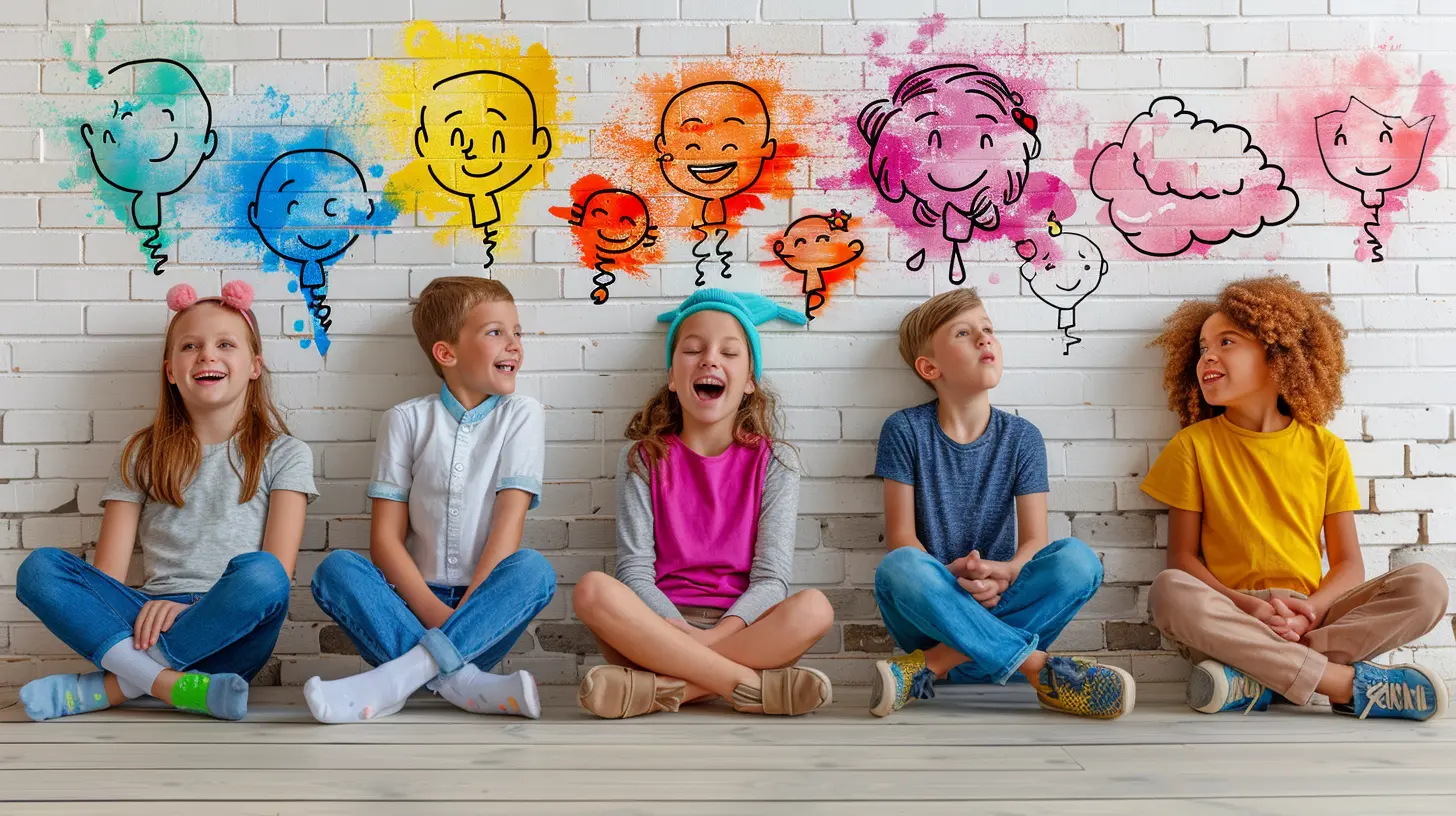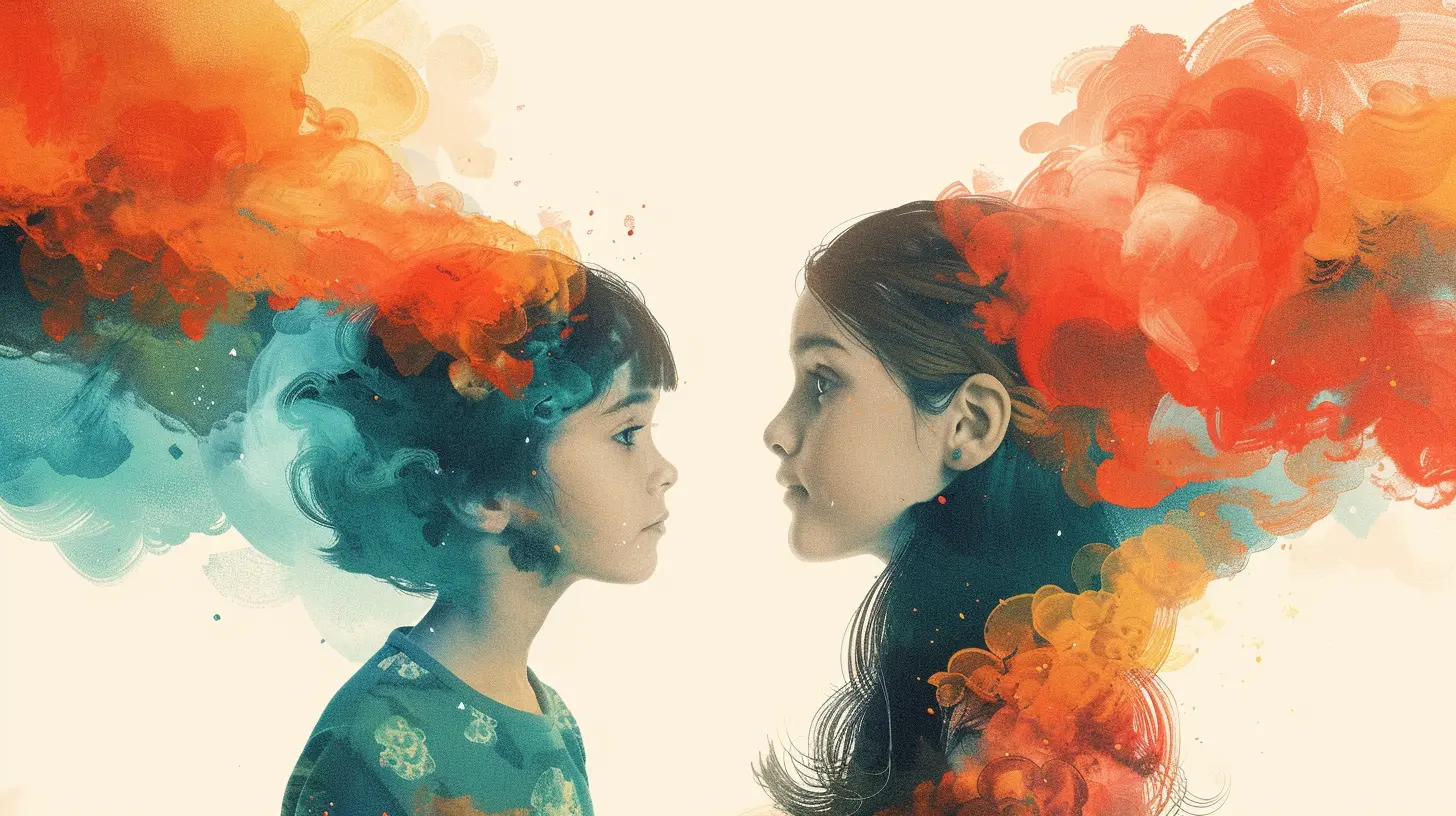Teaching Emotional Intelligence to Young Children
24 June 2025
Let’s be real for a second—parenting is basically trying to raise tiny humans into kind, thoughtful, emotionally balanced adults while also trying not to lose your own mind in the process. Sound familiar? If you’ve ever watched your toddler go full meltdown because their banana broke in half, you’ve already seen how emotions can run wild in tiny bodies. That, folks, is where emotional intelligence (EQ) steps in like a superhero in pajamas.
So, if you're wondering how to give your child a head start not just in ABCs and 123s but also in feelings and empathy—pull up a chair, grab your coffee, and let’s dive into the wonderful world of teaching emotional intelligence to young children.
What Is Emotional Intelligence, Anyway?
Before we can teach it, let's break it down. Emotional Intelligence is the ability to understand, express, and manage emotions—both your own and others’. Think of it as your child's internal GPS for navigating life’s ups, downs, and all the weird turns in between.EQ includes five key components:
1. Self-awareness
2. Self-regulation
3. Motivation
4. Empathy
5. Social skills
Sounds big, right? But here’s the good news: kids are like emotional sponges. They soak up behaviors, language, and responses from the adults around them. So when we teach them about EQ early, we’re basically planting seeds for healthier relationships, better focus in school, and fewer public tantrums.
Why It Matters More Than Ever
In our fast-paced, tech-obsessed world, emotional smarts are just as important as academic smarts—if not more. EQ helps children:- Cope with frustration
- Communicate their feelings
- Build stronger friendships
- Make better decisions
- Bounce back from setbacks
Plus, kids with strong emotional intelligence are less likely to struggle with anxiety, depression, or behavioral issues. I mean, who wouldn’t want that?
Start Early, Start Simple: The Toddler Years
You don’t need a psychology degree to start teaching EQ to your little one. All you need is a truckload of patience and a sense of humor. Talking about emotions can—and should—start as early as those first wobbly words.Here’s how to start:
1. Name Those Big Feelings
Ever seen a toddler go from giggling to sobbing in 2.5 seconds? Yeah, us too. The first step toward emotional intelligence is helping kids understand what they’re feeling.Try this:
- “You look really frustrated that your block tower fell down.”
- “I can see you're excited to go to the park!”
By naming emotions, you help little ones connect feelings to words. It’s like giving them a toolbox to express themselves instead of screaming into the void (or your face).
2. Model It Like a Pro
Okay, confession time: we parents aren’t always the poster children for calm reactions either. But kids? They’re watching you more closely than a cat watching a laser pointer.So if you’re feeling angry, say it:
- “I’m really upset because we’re running late, and that stresses me out. I’m going to take a deep breath.”
Boom. You just taught emotional honesty and coping skills in one breath.
Preschool to Early Elementary: Building EQ Muscles
As your child grows, so do their emotions—and their ability to understand them. This is the golden stage to dig deeper.3. Use Storytime to Talk Feelings
Books are EQ goldmines. Every character is going through something, and it’s a prime opportunity to talk about it.Ask:
- “How do you think she felt when that happened?”
- “What would you do if your friend took your toy?”
Engaging in these conversations builds empathy and emotional reasoning without turning it into a lecture. Plus, snuggles and storytime? Win-win.
4. Practice Problem-Solving Together
Instead of jumping in with fixes (we’ve all done it!), try coaching them through it:- “Hmm, you’re arguing with your friend. What could we try to make it better?”
- “You seem upset. What might help you feel better?”
You’re not just solving the mess—you’re teaching them how to handle things next time.
Tools and Tricks to Boost EQ Every Day
Let’s sprinkle some practical magic into your daily routine. Because let’s be honest: between dishes, laundry, and the chaos of toddlerhood, we need this to be doable.5. Create a Feelings Chart
Turn fridge space into a feelings-finding center! A simple chart with faces—happy, sad, mad, scared—lets kids point to how they feel even if they can’t say it.Bonus idea: Make your own with your child’s photos showing different expressions. It’s like emotional flashcards 2.0.
6. Introduce a “Calm Corner”
Forget time-outs—think time-ins. A cozy spot with pillows, books, maybe a stuffed animal. Teach them that it’s okay to step away and calm their emotions.Add tools like:
- Stress balls
- Glitter jars (aka "calm-down bottles")
- Breathing techniques
It’s like their own personal chill zone.
7. Make Feelings Part of the Conversation
At dinner, bath time, or bedtime, ask:- “What made you feel happy today?”
- “Did anything make you feel upset?”
Normalize talking about emotions. That way, when big ones hit, your child already knows how to process, not panic.
The Power of Play in Teaching Emotional Intelligence
Kids don’t want lectures—they want playtime! So sneak in some emotional learning while you’re at it.8. Role-Playing Games
Grab some toys (stuffed animals work wonders) and act out mini emotional scenes:- “Bear is sad because Bunny didn’t want to play.”
- “Dino is angry that someone knocked over her blocks.”
Then ask your child what the toy should do. You’ll be amazed at the empathy and creativity that come out.
9. Emotion Charades
Act out feelings and have your child guess them. It’s silly, sure, but it builds emotional vocabulary fast. Plus, your sad face is probably hilarious.Helping Kids Handle Big Emotions
Let’s face it—tantrums, tears, and emotional outbursts are part of the deal. But you can help your child not just express emotions but manage them.10. Teach Breathing Techniques
One of the simplest—and most powerful—tools? Deep breaths. Teach them to:- Smell the flower (inhale)
- Blow out the candle (exhale)
Do it with them during calm times. That way, it’s not foreign in the middle of a meltdown.
11. Use a Feelings Thermometer
Some kids struggle to recognize when they’re simmering vs. boiling over. A visual thermometer helps them spot their ‘heat level’ before it explodes.You can even code it:
- Green = calm
- Yellow = frustrated
- Red = outbursts
Teach them ways to “cool down” before they hit red.
Celebrate the Small Wins
Emotional intelligence isn’t built in a day—it’s built in seemingly small moments: choosing kindness, breathing through frustration, saying “I’m sorry” after a fight. Celebrate these wins!Say things like:
- “I saw how you took a deep breath when you were upset. That’s amazing!”
- “You told your friend you felt left out—that’s brave and honest.”
Positive reinforcement makes your child want to keep practicing these skills.
When Things Don’t Go Smoothly (And They Won’t)
Let’s get real. There will be days where your child seems to have zero emotional awareness, throws spaghetti at the wall, and sobs because you “broke” their sandwich.Guess what? That’s okay.
Emotional intelligence doesn’t mean perfection—it means progress. It’s messy, ongoing, and full of restarts. The goal isn't to raise a robot who never gets angry, but a human who knows how to handle it when they do.
Final Thoughts: You’re Doing Better Than You Think
Raising emotionally intelligent kids isn’t just about teaching them to be happy all the time. It’s about helping them feel all their feelings—and handle them in healthy ways.And the fact that you’re reading this? Means you’re already doing the work. High-five, superhero parent.
Remember: you’re not just teaching your child how to deal with emotions. You’re teaching them how to be in the world—with compassion, with confidence, and with a whole lot of heart.
all images in this post were generated using AI tools
Category:
Parenting TipsAuthor:

Tara Henson
Discussion
rate this article
2 comments
Jemima Spencer
Oh sure, because toddlers totally master their feelings, right?
December 1, 2025 at 5:52 PM

Tara Henson
Absolutely, toddlers are still learning to navigate their emotions. Teaching them emotional intelligence helps guide that process!
Elwynn Love
Teaching emotional intelligence to young children is like giving them a superpower! By nurturing empathy and self-awareness, we’re not just shaping better kids; we’re cultivating future adults who can navigate life's complexities with grace and understanding. Let’s start early!
July 3, 2025 at 4:27 AM

Tara Henson
Thank you for your insightful comment! I completely agree—nurturing emotional intelligence in children is indeed a powerful investment in their future and our society.


